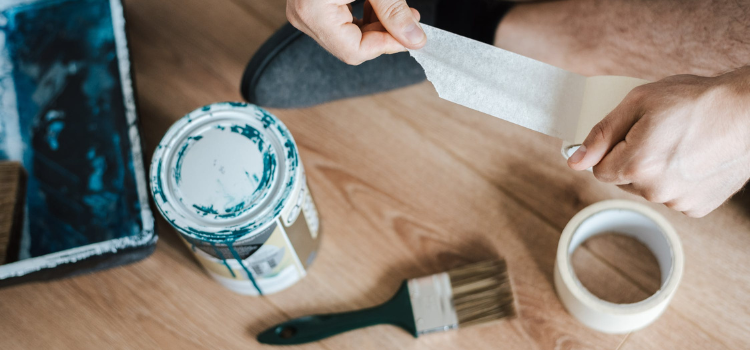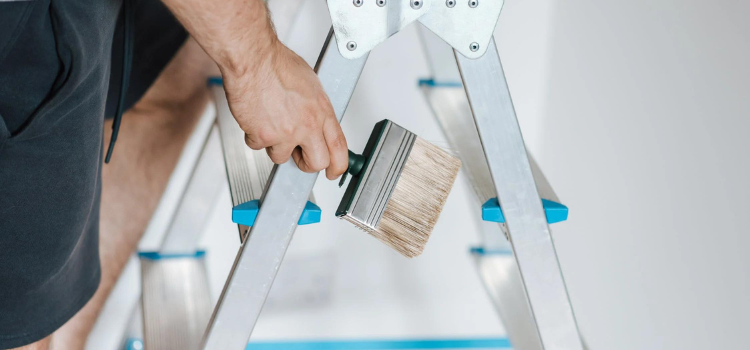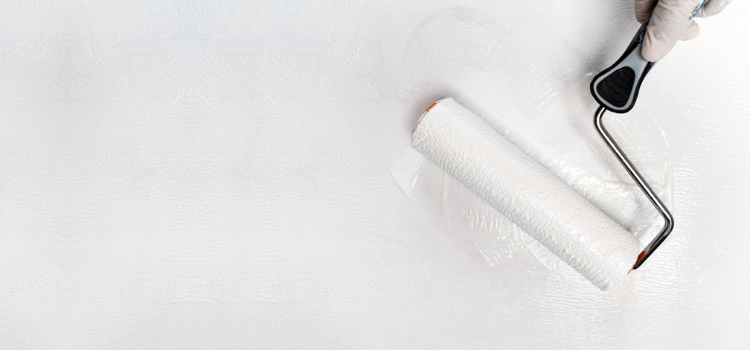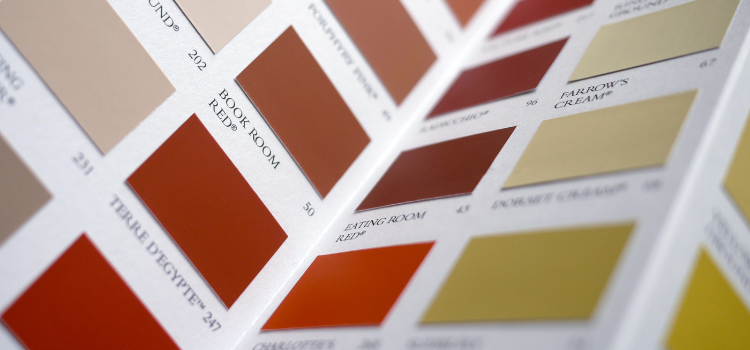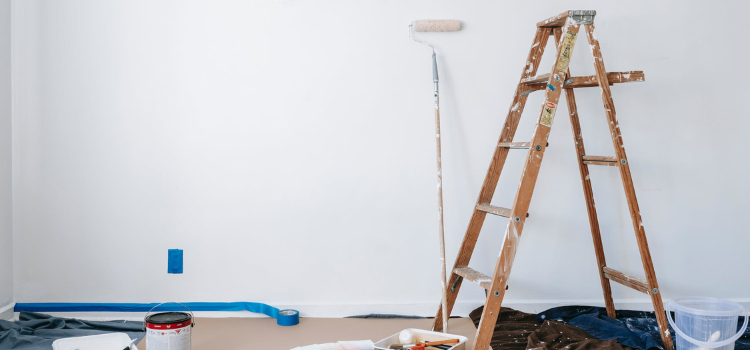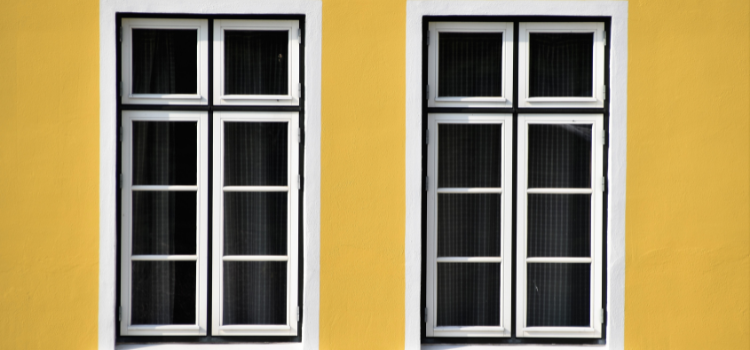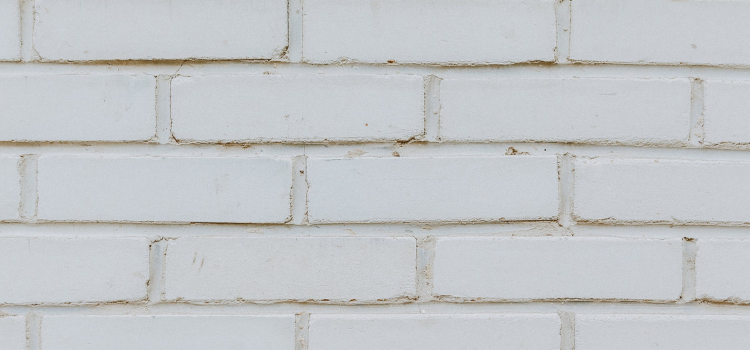


Painters
In need of a painter for an upcoming project or house renovations? Service.com.au has the best house painters, decorators, interior paints and exterior painters in Australia. No matter the job you require, we have the perfect painter for you.
Get quotes from our qualified and licensed tradies Australia-wide.
Overview
- Are there different types of painters?
- Painters' services
- Residential painter
- Commercial painter
- Abseil painter
- How to plan your painting project
- How to choose the right painter
- Painting and decorating FAQs
Are there different types of painters?
If you're considering painting your home or business, choose from the following different types of painters to hire someone skilled and with the specialised equipment required to complete your painting job to the highest standard:
Types of Painters
- Residential Painter
- Exterior Painters
- Fence Painters
- Interior Painters
- Roof Painters
- Spray Painting
- Commercial Painter
- Abseil Painter
Painters' Services
Colour Consulting
Receive professional advice on what colour/s will best suit your home.
Interior Painting
A fresh coat of paint can make all the difference to your home’s interior and hiring a professional ensures only the highest quality. Your floors and furniture will be covered and the walls properly primed to promote longevity.
Exterior Painting
Painting your home’s exterior provides protection from the elements and a fresh lease on life for your property. A professional painter will strip existing paint, prime and apply your chosen paint.
Fence Painting
Apply a coat of paint to your fence to complete the look and provide protection from the outdoors. Painters typically opt for spray guns as a fast and efficient method.
Roof Painting
The icing on the cake, painting your roof will perfectly finish your home’s look. The process involves pressure cleaning, repairs (if necessary), sealer application and airless spray painting gun to add the final touch of paint.
Exterior Timber Repairs
Professional painters also repair timber by cleaning it, applying new stains, oils, varnishes and paints to get your timber back to top condition.
Special Finishes
Special finishes offer a bold finish. Choose from suede, metallic, pearl, satin and marbling.
Spray Painting
The quickest and most accurate method of painting large exterior spaces.
Commercial Painting
Commercial properties require minimal disruption with highest results. A professional painter will revive your commercial facility in no time at all.
Wallpapering
A popular alternative to paint, creating textures that paint alone cannot achieve. Choose from textures such as; hessian, canvas, vinyl, wood, rice paper and more.
Residential Painter
A residential painter will maintain the upkeep of a property or assist with a new build or renovation by preparing, painting and finishing walls and ceilings in the home. A painter can advise on colour schemes, recommend the most suitable paint type and materials, and utilise the most effective tools to complete the residential paint job within budget and on time.
As well as working inside, a residential painter can also treat and paint the outside areas of a home including, verandas, balconies, sheds and garages.
Residential Painter Responsibilities:
- Advise on colour schemes, styles and modern trends in painting
- Prepare and treat a variety of surfaces including brick, wood and plaster
- Sand, paint and varnish door and window frames
- Repair dents to walls, doors, frames and ceilings
- Protect furniture, carpets and property
- Protect the outside of buildings with UV protective and self-priming paint
- Paint outside areas including sheds, garages, roofs and balconies
- Erect scaffolding and utilise the correct safety equipment to reach tall ceilings and roofs
Commercial Painter
Maintaining the appearance of a commercial property or corporate environment is essential to uphold the reputation of a business and keep the workforce motivated.
A commercial painter is experienced in internal and external painting of the following:
- Industrial buildings
- Construction sites
- Office buildings
- Stadiums and arenas
- Public structures such as tunnels, bridges and parks
Commercial painting can be more complicated than residential painting due to the full range of specialised equipment required. A commercial painter must also consider the needs of the business including working around machinery, office workers and members of the public. In addition to the specific nature of the painting required, a commercial painter must adhere to industry standards in workplace health and safety protocol.
Commercial Painter responsibilities:
- Protecting work surfaces from exposure to harsh chemicals and materials found in industrial environments
- Painting public areas subject to excessive public use
- Painting buildings on unit block or hotel construction sites
- Painting offices, shopping centres and retail outlets
- Painting machinery
- Maintain a safe work area
- Respecting the needs of the business working around business hours, staff and public traffic
Abseil Painter
An abseil painter offers a safe and practical solution for painting multi-level buildings such as unit complexes, hotels and shopping centres. Safety is paramount to abseil painters, and all equipment and tools must pass stringent testing.
Abseil Painter Responsibilities
- Prepare and paint high rise buildings such as unit blocks, hotel complexes and retail outlets
- Utilise ropes and anchors to paint multi-storey public and private buildings safely.
- Adhere to strict health and safety protocol including always working two at a time
How to Plan Your Painting Project
Painting is a skilled trade that requires thorough planning and preparation. While it may be tempting to rush, careful planning will raise the standards of the building making the paint job look better and last longer.
The following are the essential steps required to plan your painting project:
Colour Scheme
It's important to seek guidance from a professional painter when choosing a colour scheme. Depending on the size, location and purpose of the room, your preferred colour and style might be unsuitable or impractical. Planning the colours will help you choose the most suitable type of paint and coordinate the décor with the rest of the building.
Preparation
The preparation stage of the painting job is undoubtedly the most important because it lays the foundation for an appealing and long-lasting paint job.
Allow plenty of time for adequate preparation including the following:
- Repairing dents in surfaces
- Sanding down surfaces
- Pressure washing external surfaces
- Scraping old paint
- Installing safety equipment such as scaffolding
- Applying masking tape to frames
- An exterior painting job will also be weather dependent so consider the rainy season or extreme weather events such as cyclones or excessive wind.
Paint and Materials
The quality of the paint, brushes and materials you choose will affect the overall results of the paint job and must be considered carefully.
Consider the sheen, UV protection and intended use of the paint, and will the brushes and equipment used give a quality finish that screams ‘professional painter’?
Safety
Planning to paint safely is the most critical element of a paint job. Painting should be done in well-ventilated rooms, with appropriate goggles and safety wear while following the manufacturer's recommendations for all paint, materials and equipment used.
Clean-Up
The paint job isn't finished the moment your painter steps back to admire their handiwork!
Allow time for a thorough clean-up which will involve cleaning all paintbrushes, spray guns, trays, and rollers. Dust sheets must be removed, and the home or property should be as immaculate as your painter found it before the painting job can be considered done and dusted.
Service.com.au will help you find the most suitable painter for your home or commercial painting job no matter how small or large.
How to Choose the Right Painter
Painters can vary in level of skill, professionalism and area of expertise.
With so many options available, here's how to choose the right painter:
Browse Painting and Decorating Listings on the Service.com.au Directory
While the internet is a valuable tool that puts local painters at your fingertips, remember that Google is only as useful as a painter's commitment to their SEO strategy.
Browse Service.com.au to receive a detailed listing of all reputable painters who are suitable for your painting job. You can then view their website from their verified listing.
Read Painters reviews
A painter will usually include reviews or testimonials with their initial quote however you can also check these in advance by checking their Service.com.au listing. Service.com.au operates a three-tier badge system, and painters which are ‘trusted’ or ‘recommended’ must have genuine reviews on their profile.
For further clarification, visit their website or social media pages from their Service.com.au listing to read more reviews and testimonials.
View Pictures of Past Work
All painters should be able to provide ‘before and after' pictures of previous work and details of the technique used to achieve the results.
Service.com.au helps customers make more informed choices about their painter by encouraging businesses to earn ‘badges’ to display on their listing, which includes displaying pictures of past work. A painter ‘verified’ (badge one) on Service.com.au must have at least one picture of past work on their listing. A ‘trusted’ (badge two) painter must have two pictures, and a ‘recommended’ (badge three) painter must have at least three pictures visible on their listing.
Get Multiple Painting Quotes
A reputable painter will always quote after they've seen the property rather than over the phone, so they have all the information they need to provide you with an accurate price.
Before accepting a quote, make sure the following are all included:
- Hiring all equipment (such as scaffolding and lifts for higher buildings)
- Insurance
- Labour
- Materials including paint and brushes
- Clean-up
Compare Painting Quote Prices
Of course, your budget is significant, and you need to choose a painter that fits within it, but you must also make sure you're getting value too. Ask if the quote includes everything you'll need, the quality of the materials, and whether insurance is included in case of any damage.
Get a minimum of three quotes and thoroughly research each painter before deciding. In all cases, get the painter to view the property before they quote, so nothing else crops up once you've committed and the job is already in progress.
Painting and Decorating FAQs
When should I hire a painter?
DIY painting is a home improvement job you'd be forgiven for thinking is as easy as A-B-C. You pick a colour, choose a brush, and the hardest part is making sure it all stays in the lines.
Right?
Well, no.
Painting is a highly skilled trade where best practices in planning, preparation and technique must be followed to improve the décor and raise the visual appeal of a home or corporate building through its perfectly-painted roof. Unfortunately, attempting a DIY painting job can often leave a property looking more like a ‘painting by numbers' exercise than an expert building improvement, so always hire a painter for the following:
To Prepare a Property for Sale
A fresh coat of paint, both inside and out, will give the appearance that a home is well cared for and maintenance is a priority. Not only will this increase the visual appeal of a property, but it will also make it more attractive to potential buyers who won't have much work to do post-sale, reducing the time it's on the market and maximising the value.
To Modernise a Property
Regardless of whether yours is a bustling family home or a single person's sanctuary, painters are familiar with modern paint trends and can refresh your paintwork to smarten up the property and help it remain en vogue.
To Protect a Property
Exposure to the harsh Australian elements can leave the outside of a property vulnerable. As well as protecting a building from extreme weather such as heat and cyclonic conditions, exterior paint also provides a barrier against pollution, debris and, in coastal areas, the residue from the beach.
To Prepare a Home for Rental
While regulations vary from state to state, a landlord is responsible for painting the interior of a rental property at reasonable intervals. If you own a tenanted property, hire a painter every five to seven years to freshen up the property and update the interior painting to maximise rental potential.
What jobs does a painter do?
A painter's job is one of the most integral cogs in a construction, building or home renovation machine. Not only does the paintwork give the overall ‘wow factor’ for a home or building, but it also protects the structure, so the core materials last long into the future.
If you've been asking yourself ‘what jobs does a painter do?' here's a rundown of their primary responsibilities:
Advise
A painter will advise the client on modern trends, colour schemes, the most suitable paint and materials, and a realistic time frame. While it's ultimately your choice as to whether you take this advice, it's recommended you always follow the professional guidance of a qualified painter to get the best outcomes.
Prepare
A painter will prepare internal and external surfaces for painting. Preparation may include filling in dents or chips in the wall, sanding and cleaning surfaces, scraping old or flaky paint away, covering edging and frames with masking tape, or pressure washing outdoor surfaces.
Paint
Rarely is painting as simple as one coat of paint and you're done! Newer walls or those which have been recently repaired may need an undercoat known as sealant or primer to create a barrier between the colour and the surface to avoid the main coat seeping into the walls or ceiling.
While the untrained eye might only see the finished coat, there's a lot of work that goes into the planning and preparation of a paint job to make sure it not only looks superb but also stands the test of time.
How much does it cost to hire a painter?
A painter may either charge per hour or cost per whole job. If a painter charges per hour, you can expect to pay anywhere between $30 and $100 an hour. If it's a significant job involving a whole house or property, the painter may have extra outgoings such as staff and hire of complex machinery, so you can expect to pay a higher hourly rate.
A credible painter will use their extensive experience and give you an extremely accurate idea of how long it will take to complete the painting job. If it looks like costing more or they run into hurdles as the job progresses, they'll let you know in advance. So you know exactly where you stand from the outset, you can also choose a painter who charges per job to avoid you having to pay any unexpected costs along the way.
How much does interior painting cost?
For a price per job, the cost is usually calculated by square metre, anywhere between $25 and $50. The lower end of the scale is a more basic paint job of one standard coat. The higher end of the spectrum includes detailed preparation of the surfaces, repair of dents and use of higher grade (more quality) paint.
How much does exterior painting cost?
The cost of outdoor painting is also usually charged per square metre, but you'll find a wider range to account for a bigger variance in the type and condition of the surfaces, extra protection required against the elements and how accessible the building is.
Expect to pay anywhere between $15 and $70 per square metre for external painting.
How much does door frame and window painting cost?
Painting door or window frames is usually added to the price per square metre. To get the best results, a three-coat system of undercoat and two main coats will cost anywhere up to $150 per frame. Depending on the size of the job, the painter will usually invoice a deposit (30%), progress payment halfway through the job (40%) and completion payment (30%).
Other Cost Guides:
- How much does a spray painter cost?
- How much does Colorbond roofing cost?
- How much does a pool painter Cost?
Does my painter need to be licensed?
Alarmingly, anyone can legally walk into your home or business and call themselves a painter regardless of their experience, length of service or formal training. That said, licensing regulations do exist for certain categories of painters across Australia. Requirements for painters are ever-changing and vary from state to state across Australia.
A reputable painter with experience of larger jobs should be licenced to make sure they can achieve minimum standards in health and safety and painting protocol. If a painter doesn't have a licence, while not illegal, this indicates their experience may be limited.
If a licence is required and it doesn't exist, this will invalidate an insurance policy, meaning that any damage caused to your home may not be covered, so read the following carefully:
Queensland Painting Licence
If the cost of the job exceeds $3,300, your painter does need a licence, and you're within your rights to ask to see it (credible painters will have their licence number displayed on marketing and advertising material).
New South Wales Painting Licence
In New South Wales, a licence is only required if painting work is completed as part of a home or building. For standalone tasks, no licence is required.
Western Australia and Victoria Painting Licence
In WA and Victoria, a painter only needs to be licensed for jobs quoted over $1,000.
South Australia, Northern Territory and Tasmania Painting Licence
In South Australia, Northern Territory, and Tasmania, painters do not require a licence. This lack of regulation means that it's entirely up to the customer to choose someone reputable. We recommend referring to the Master Builders Association professional body in the relevant state.
To become a member, the painter must have public liability insurance and abide by a code of conduct and ethics.
Is painting work guaranteed?
If a painter leaves drip marks, the paint is patchy or isn't up to standard, ask about customer satisfaction guarantees. Will the work will be repaired, or payment is reimbursed if you're unhappy with the outcome?
What's the payment schedule?
Understanding expectations regarding payments is essential so you can prepare your budget. Most painters will operate on a deposit system, so gain clarity around when payment is expected and how milestones are tracked.
What do you do if there's any damage to your property?
Paint is a chemical substance, and as such, any damage to furniture, carpets or property may be permanent. While all painters will do their best to protect the surroundings, accidents do happen, and it's best to know what you can expect if it does, including checking they have adequate insurance coverage.
What hours are best for you?
While you might leave the house at 9am, a painter may prefer to get started earlier. If you run a business, you may need the painter to work outside of trading hours. It's important to find out the finer details before you book to make sure the painter can coordinate with your schedule.
